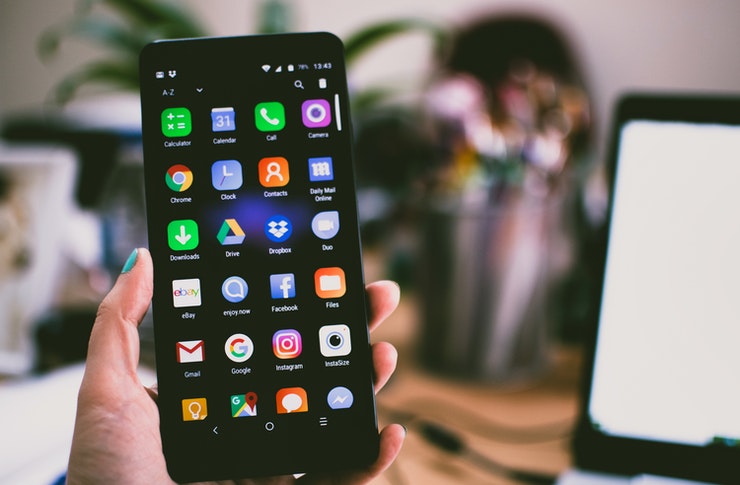The Security Risk Of Smartphone Hacking
Smartphones have collected all of our personal information and accounts in one easy-to-access spot, making them an ideal target for hackers. Your phone is connected to everything, including banking, email, and social networking. As a result, if a criminal gains access to your phone, all of your apps become vulnerable to cyber theft.

Without your awareness, phone hacking can damage your identity and privacy. Hacking techniques are always evolving and improving, making them more difficult to detect. This means that any amount of cyberattacks might blind the ordinary user. Fortunately, staying to date on the latest hacks will safeguard you.
The Security Risk of Smartphone Hacking
According to statistics, there are over 1.6 million fraud activities targeting iOS and Android users, and cybercrime damages the global economy by $42 billion every year. Every day, an average of 10,573 fraudulent mobile apps are blocked. Kindly check the specific dangers that your smartphone faces in the internet age.
Phishing and Smishing Attempts
On your phone, the most danger is falling victim to a phishing assault. For those who don’t know, phishing is when hackers try to persuade you to give up personal information or login credentials, so they can steal from you or access data they shouldn’t have access to. It’s part of a larger scheme known as social engineering, in which one person tries to persuade another to execute their will.
The majority of phishing scams are difficult to detect. Hackers will call or send you messages that look to come from a trustworthy source in the hopes that you will fall for it and give them the information they need.
Phone phishing isn’t the only type of phishing. It happens on desktop computers as well, but users are three times more likely to fall victim to a phone attack than to another device. One of the main reasons for this is how easy it is to click something on the phone by accident. Touchscreens make it simple to tap a link you shouldn’t, and sometimes that’s all it takes.
Smishing is a type of phishing that works in the same way as phishing but uses text messages to deliver the operation.
Because most individuals are unaware of their existence, they are very deadly. They receive a text and are unsure what to do with it, so they click, and the harm is done.
We’ll go into how to avoid a phishing operation a little later, but as a general guideline, if you get a strange-looking text with a link, don’t click it!
Malicious Software
Malware is the second most serious threat. Again, this isn’t unique to phones, but there are a few additional concerns that you and your phone should be aware of. Malware is a general word for the various sorts of malicious software that can be downloaded.
On your phone, there are three basic types to watch out for; Ransomware, Spyware, and Malicious apps.
The fact that mobile phones are continually connected to numerous networks is one of the reasons they are so vulnerable to hacking. Most of us leave our Wi-Fi turned on, and we are fast to join a network when we are in a public place to limited data allocation.
However, the danger here is that these networks are frequently insecure, allowing others to gain access to your phone. Hackers can use it to monitor your emails, texts, phone calls, and other communications to obtain vital information. It’s rather simple to avoid this if you’re vigilant and follow the procedures we’ll detail, but just because it’s simple to avoid doesn’t mean the risk isn’t serious.
Stolen one’s identity
Finally, when it comes to smartphone cybersecurity, the most important issue to be concerned about is identity stealing. Because we save so much of our life on our phones, it’s probably easier for a hacker to perform full-fledged identity theft by getting into your phone.
To put it mildly, having your identity stolen is a nightmare. Your credit cards can be hijacked, new ones can be opened in your name, or money can be taken directly from your accounts. It can be difficult to establish identity theft, making it impossible to recover any funds lost as a result of the crime.
This isn’t meant to scare you; rather, it’s supposed to remind you why it’s so critical to take this seriously. Negligence can cause far-reaching implications.
How To Keep Your Phone Safe From Hackers And Viruses 1. Don’t Install Any Dubious Or Suspicious Applications 2. Always keep your phone with you. 3. Always use a passcode lock and make your passwords as strong as possible. 4. Your phone passwords should not be stored on your device. 5. Clear your internet history regularly 6. Enable a service for tracking missing devices. 7. Make it a point of duty that all of your apps are up to date. 8. Enable two-factor authentication at all times (2FA). 9. When it comes to 2FA, be careful about using SMS or email. 10. If you don’t have a virtual private network, don’t utilize public Wi-Fi (VPN). 11. Do not jailbreak your phone.
As more of our personal information becomes digitized and mobile-connected, phone hacking protection becomes increasingly vital. Because methods are continuously changing, you must maintain a high level of security.
The best approach to defend yourself is to be aware of your digital behavior, and fortunately, numerous well-known techniques have been shown to reduce hacking risks.




